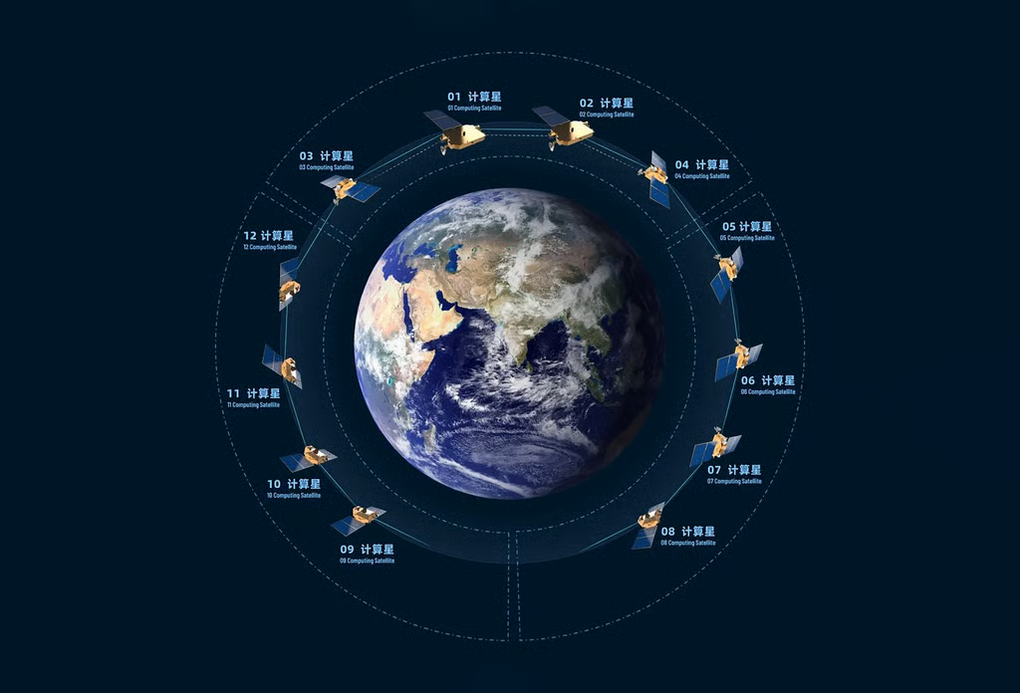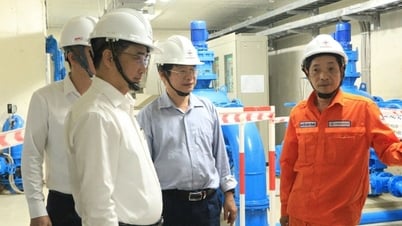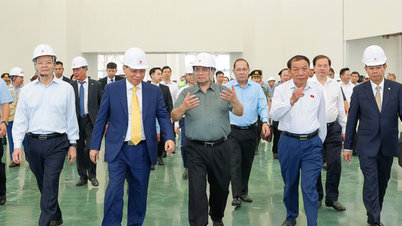These satellites were developed and manufactured by ADA Space, a Chengdu-based startup that specializes in developing commercial satellite solutions that integrate artificial intelligence (AI), allowing data collected by satellites to be processed directly in orbit, instead of relying on ground-based computing infrastructure, helping to reduce latency when processing large data.
These are satellites under ADA Space's "Star Compute" program and are the first satellites of a supercomputer system in space. Each satellite put into orbit is equipped with an intelligent computer system for self-processing and the ability to communicate between satellites.

China's constellation of satellites, each equipped with an AI-integrated computer system, will link together to form a supercomputer in space (Photo: Handout).
The computer system on each satellite is integrated with an AI model with 8 billion parameters and is capable of processing 744 trillion calculations per second (TOPS). When combined, the satellites will form a computer system capable of processing 5 POPS (5,000 TOPS, equivalent to 5 million billion calculations per second).
The Chinese government says the ultimate goal is to build a supercomputer system with a computing capacity of up to 1,000 POPS (1 quadrillion calculations per second).
The satellites in the "Star Compute" network can communicate and transmit data to each other at 100Gbps using lasers and have the ability to store 30TB (30,000GB) of data. The satellites are also capable of generating 3D digital data for use in research, emergency response, gaming, or tourism .
ADA Space representative said that building a supercomputer system in space will help save time processing large data, without having to spend time transmitting data to the ground, helping the processing process take place faster and more efficiently.
China's space supercomputer system is expected to help the country make outstanding discoveries about the mysteries of the universe, while also serving the country's ambition of sending humans to space.
"Supercomputers in space could use solar energy, reducing the need for energy generated on the ground, helping to avoid the risks of global warming.
I believe that in the future, the US and European countries will soon build supercomputer systems in space like China," Jonathan McDowell, a PhD in astronomy from Harvard University, shared.
Source: https://dantri.com.vn/cong-nghe/trung-quoc-bat-dau-qua-trinh-xay-dung-sieu-may-tinh-trong-khong-gian-20250519092646608.htm


![[Photo] Prime Minister Pham Minh Chinh inspects the progress of the National Exhibition and Fair Center project](https://vphoto.vietnam.vn/thumb/1200x675/vietnam/resource/IMAGE/2025/5/19/35189ac8807140d897ad2b7d2583fbae)
![[Photo] President Luong Cuong presents the 40-year Party membership badge to Chief of the Office of the President Le Khanh Hai](https://vphoto.vietnam.vn/thumb/1200x675/vietnam/resource/IMAGE/2025/5/19/a22bc55dd7bf4a2ab7e3958d32282c15)
![[Photo] General Secretary To Lam attends the conference to review 10 years of implementing Directive No. 05 of the Politburo and evaluate the results of implementing Regulation No. 09 of the Central Public Security Party Committee.](https://vphoto.vietnam.vn/thumb/1200x675/vietnam/resource/IMAGE/2025/5/19/2f44458c655a4403acd7929dbbfa5039)













































































![[VIDEO] - Enhancing the value of Quang Nam OCOP products through trade connections](https://vphoto.vietnam.vn/thumb/402x226/vietnam/resource/IMAGE/2025/5/17/5be5b5fff1f14914986fad159097a677)





Comment (0)